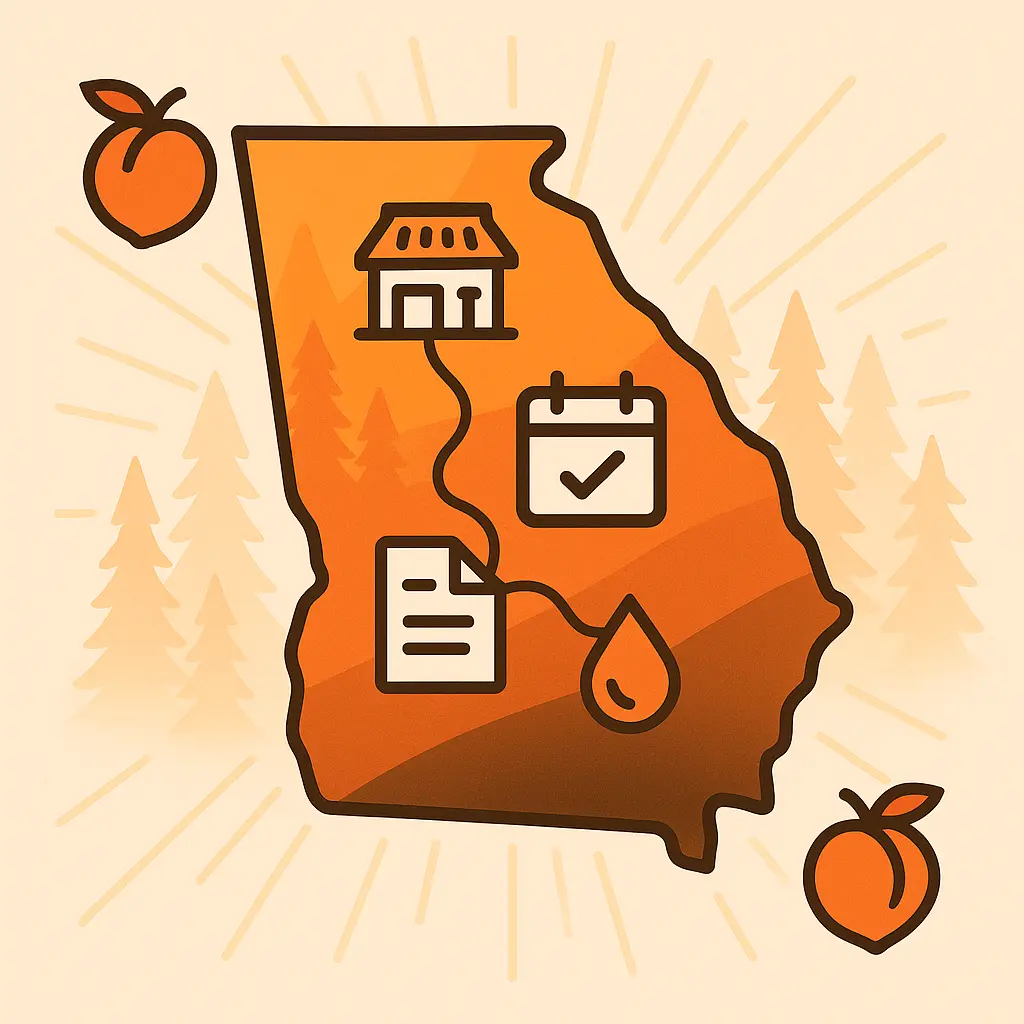FOG & Used Oil Rules for Georgia
Georgia’s plumbing code, adopted statewide through the Georgia Department of Community Affairs, mirrors the national IPC standard: every grease interceptor must be pumped at least once every ninety days or the moment grease and settled solids reach one‑quarter of the tank’s depth. That baseline applies everywhere from Bainbridge to Blue Ridge, but each county layers permits, surcharges, and civil fines on top so a restaurant on Peachtree Street files different paperwork than a seafood shack on Tybee Island. Start with the statewide snapshot, then tap your county for today’s dollars and renewal links.
Researched and Authored by:

Jorge Argota
Co Founder

View our resources of important information in regards to your restaurants for rules and regulations to avoid penalties.
Statewide Snapshot
Georgia law draws a bright line between two waste streams:
Grease‑trap waste – Water laden FOG pumped from the interceptor. Every load needs a manifest that stays on‑site for three years.
Used cooking oil – Clean fryer oil that you pour into a barrel and sell or recycle. No state pickup interval exists, but health departments match your fryer output to haul tickets; if the numbers don’t add up, they assume illegal dumping. Recycling through a licensed hauler keeps you off that radar and usually pays a rebate.
Best practice: File every pump out manifest and oil pickup ticket the day you get it. Keep three years of records within arm’s reach of the sink so an inspector can verify compliance in seconds.
25 % limit
Pump the interceptor as soon as grease or sludge reaches one quarter of its capacity.
90 day limit
Even a spotless trap must be pumped at least once every three months.
Legal GA Statue
Violations fall under Georgia Statue § 391‑3‑6 (water quality) and local pretreatment codes; counties may add civil penalties and recovery fees.
Your County Rules & Regulations
Choose a county to see permit fees, dumping fines, and renewal portals.
Fulton County
$250 FOG certificate, $300 first‑offense dumping ticket that jumps to $900 on a repeat. Interceptors follow the 90‑day / 25 percent trigger.
Read More
DeKalb County
$200 permit, $250 dumping fine (first), $750 (second). Same 90‑day or 25 percent pump‑out rule, plus quarterly manifest audits by pretreatment staff.
Read More
Chatham County
$160 permit plus a volume surcharge, $230 dumping fine that rises to $690. Coastal eateries also face a $100 hurricane‑season sealing surcharge from 1 June to 30 November.
Read More
Cobb County
$185 permit, $240 spill citation, $720 on the second offense. Inspectors spot‑check pump‑out receipts at surprise visits.
Read More
Glynn County
$160 permit, $200 fine, $600 for repeat dumping. The coastal surcharge applies here as well during hurricane season.
Read More
Muscogee County
$200 permit, $250 first‑offense fine, $750 second. Quarterly manifest reporting required through the county’s online portal.
Read More
Popular Downloads – Updated Weekly
The four files kitchen managers in Georgia grab most—live counts refresh each Monday so you see what’s trending.
Can’t Find a Link?
Email info@greaseconnections.com with your county or request—our emergency response team will add the resource within one business day.
Last checked 19 May 2025 — next review Aug 2025
